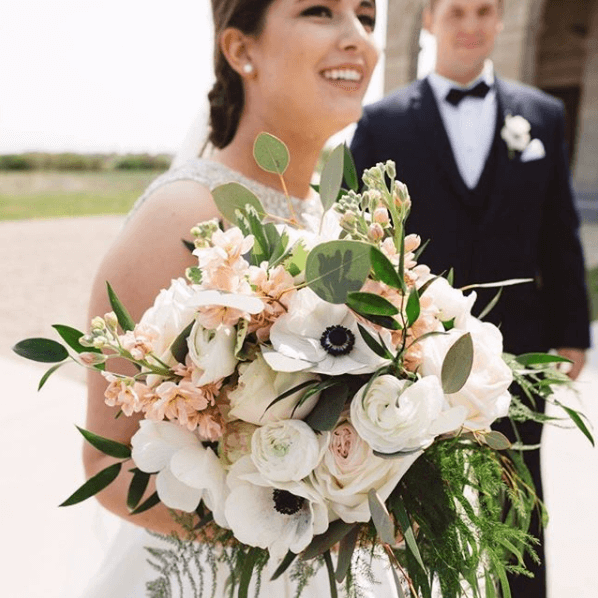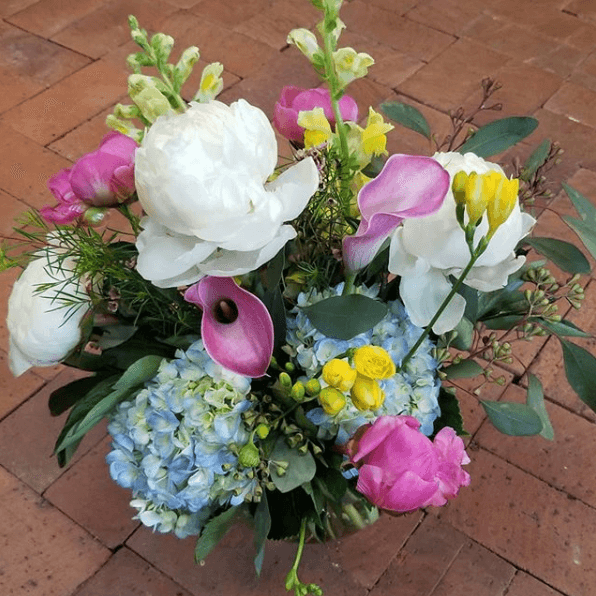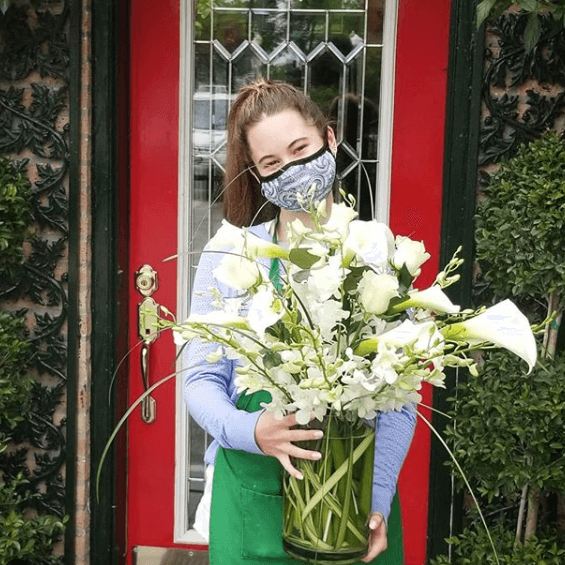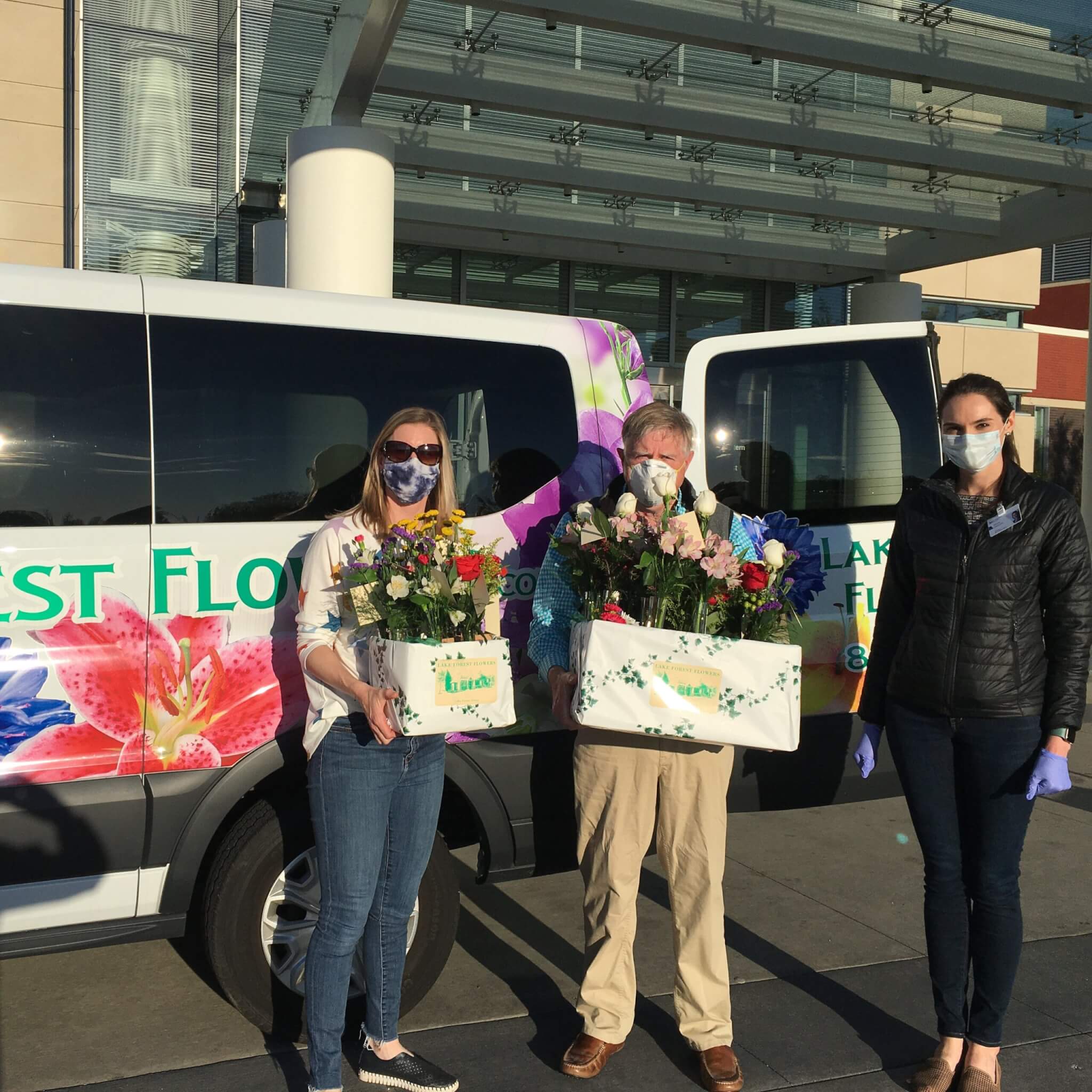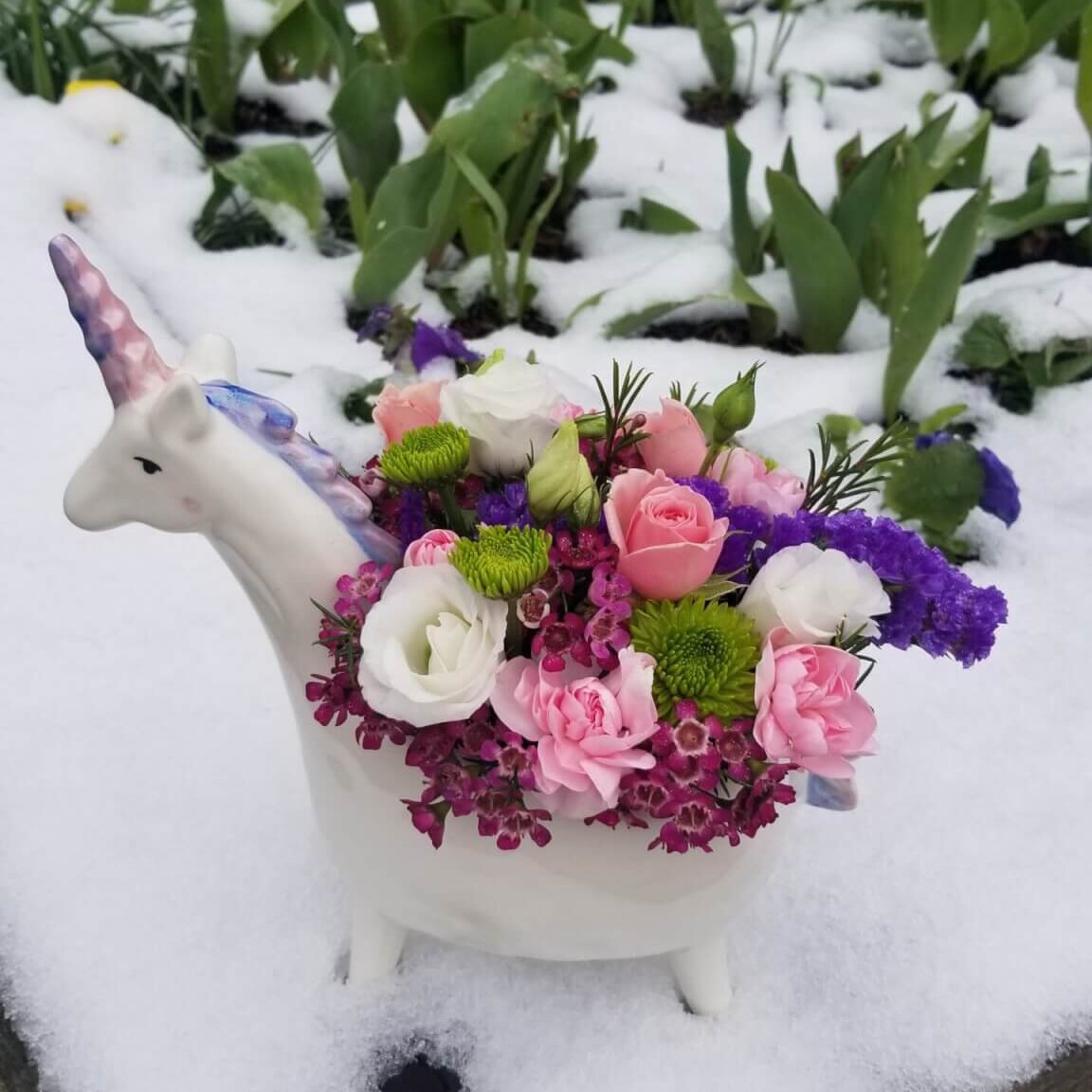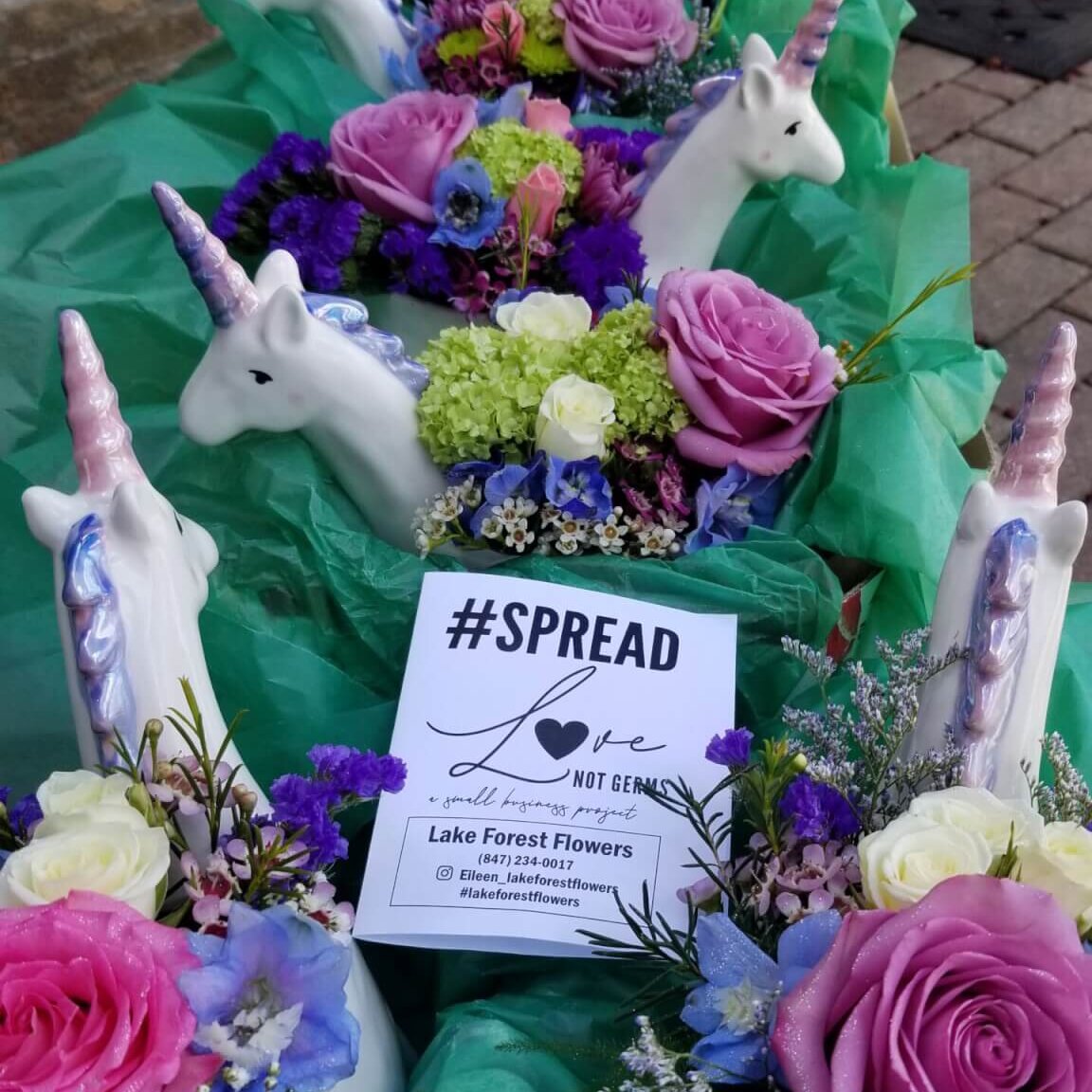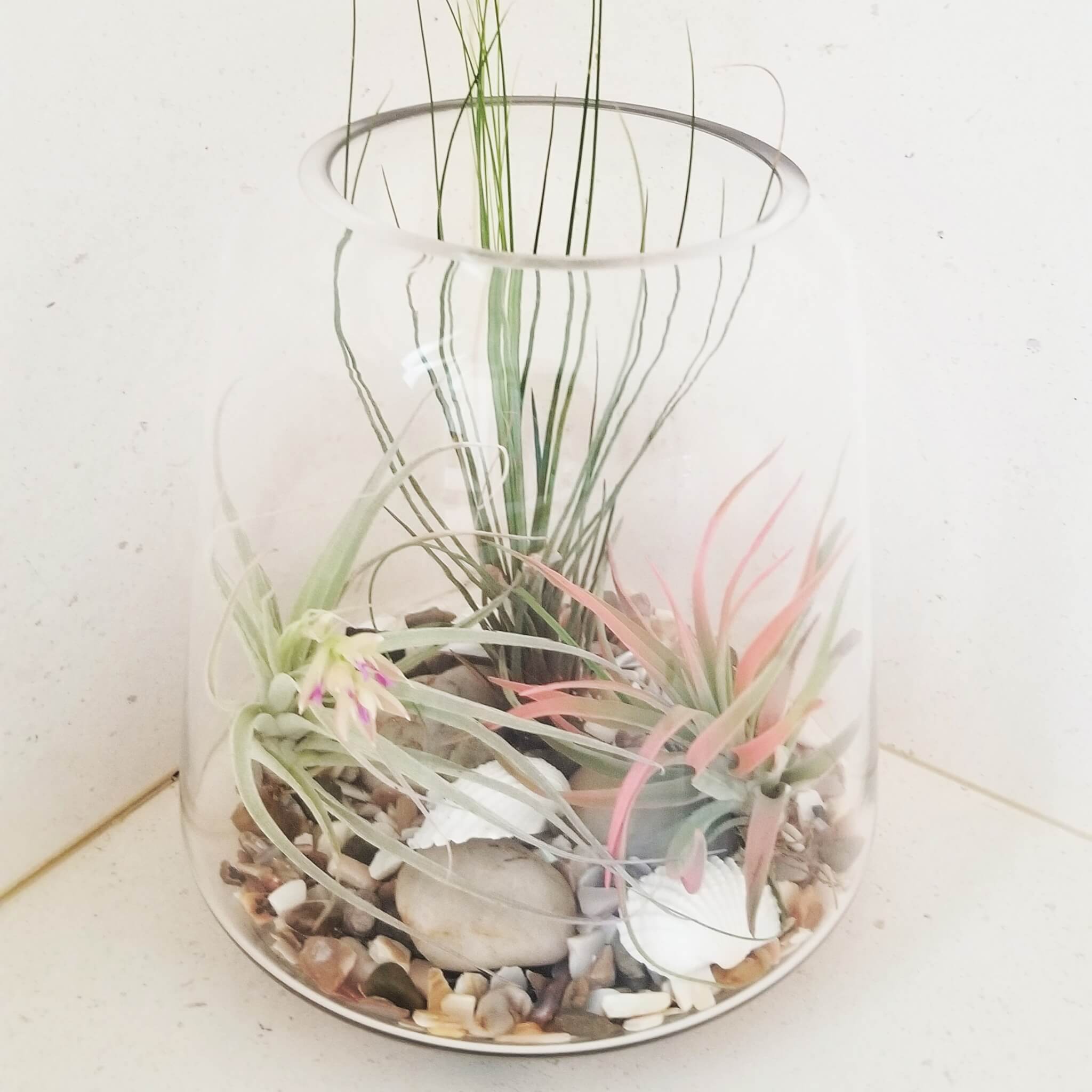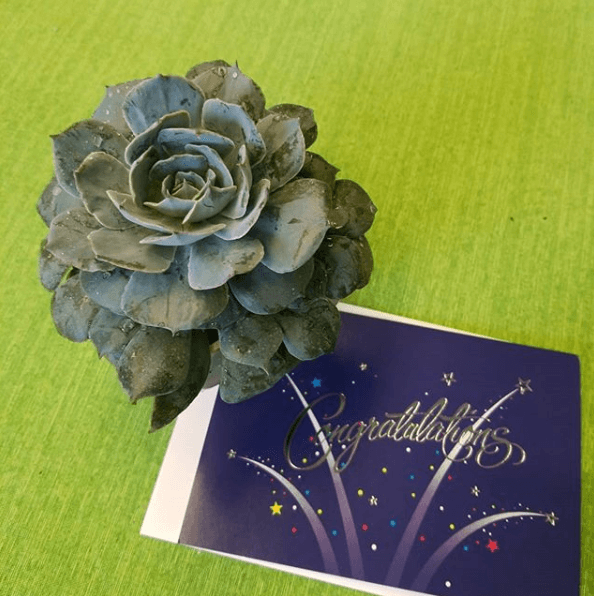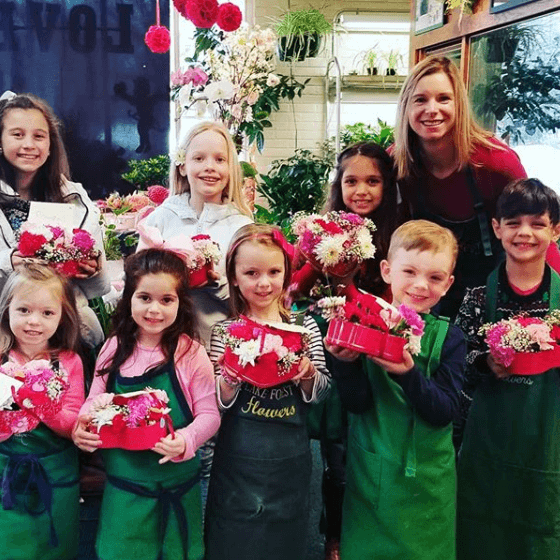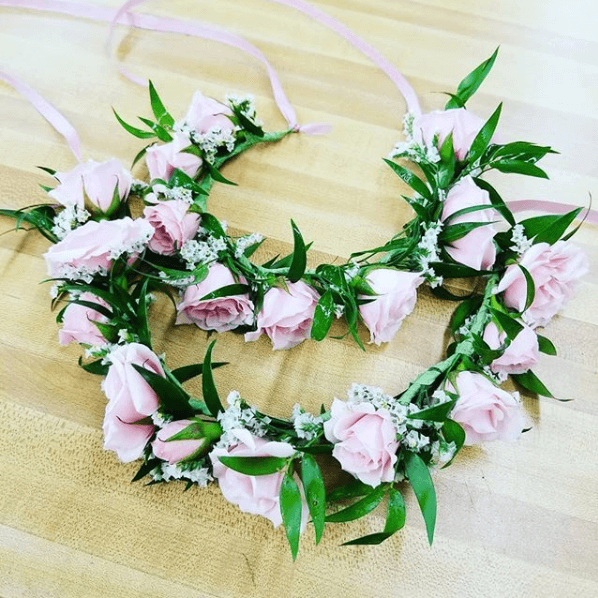Florist arranges for flowers to travel when loved ones cannot
For a company to stay in business for 100 years, it has certainly faced its share of hurdles. Lake Forest Flowers planted its roots northeast of Chicago in 1917, a few months before the Spanish Flu arrived. A century later, facing the COVID-19 pandemic, Lake Forest Flowers continues to find ways to meet changing needs.
Eileen Weber, vice president of Lake Forest Flowers, graduated from Purdue in 2003 with a degree in horticultural production and marketing. For the past 17 years, she has worked with her father, John Looby, who purchased the flower shop shortly before Weber was born. Weber attributes the longevity of the business to the deep roots she and her father planted in the community. “We are heavily involved as volunteers in city government, our schools, churches and other nonprofit organizations. As a business owner, you need to put yourself out and in front so that when someone needs flowers for any occasion, they think of you.”
“I love that Purdue gave me the flexibility to merge my business acumen with a scientific background. It provided a great segue into my work at Lake Forest Flowers,” Weber explained.
“Most of my customers never step foot into the store, so I connect with them through images on social media. I’ve always believed that flowers speak what words cannot say.”
The experience Weber gained creating virtual connections prepared her for the challenges presented by the COVID-19 pandemic.
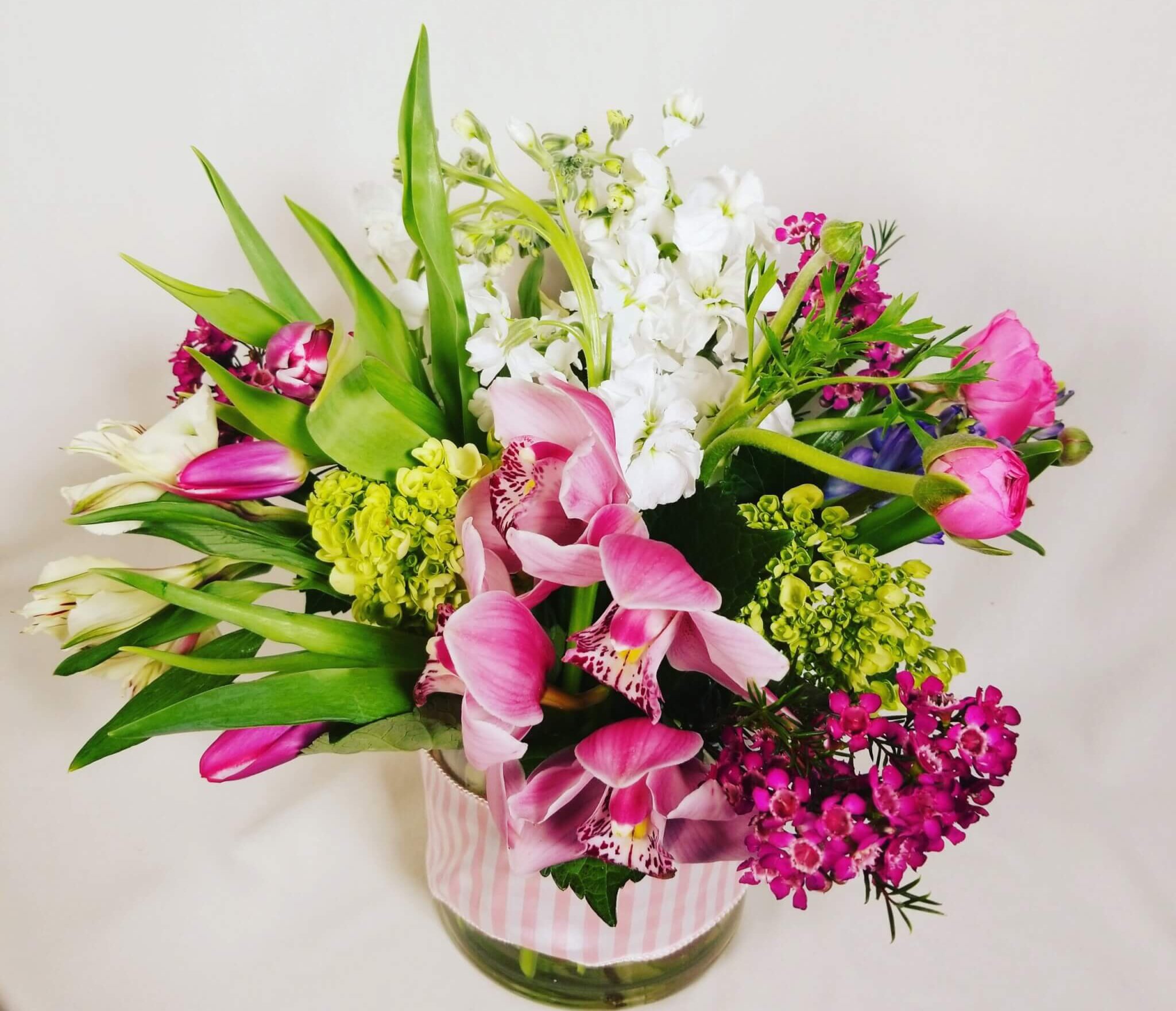
In March, Lake Forest Flowers closed to the public, taking orders online and by phone. Spring is traditionally a lucrative season for florists, but most weddings, graduations, proms and Easter celebrations were canceled. Airline shutdowns made procuring products difficult. Approximately 85% of the shop’s flowers are imported from the Netherlands, Canada, Israel, Mexico, Thailand and countries in South America.
Despite the difficulties, Weber found ways to remain positive. “Normally prom is the same weekend as Mother’s Day. Because we didn’t have that additional strain, we were able to take on a higher quantity of orders for Mother’s Day.”
“People weren’t able to celebrate the lives of loved ones with traditional funerals unfortunately because of the new restrictions. We had clients who were only allowed to have ten family members attend a burial. Sending flowers to their residences provided a way for people to express their love and support.”
“Similarly, with senior living communities preventing residents from leaving their apartments, flowers were able to cross that barrier and boost spirits.”
Weber had clients who were sending flowers for the first time. Others sent flowers for new occasions and to express their gratitude to essential workers.
“In our community, we adopted the hashtag #SpreadLoveNotGerms as a way to support local businesses. Since friends weren’t able to see each other, we encouraged them to buy gifts from places like the local book store, toy store, bakery and our shop. We attached cards detailing the campaign, encouraging recipients to continue the momentum.”
"Flora the Unicorn" was a popular arrangement designed by Weber to help #SpreadLoveNotGerms.
Weber hopes 2020 will bring awareness to new ways people can use flowers to improve lives.
“Science has proven that flowers have a positive impact on people,” said Weber. “They can affect their mood, reduce stress, relieve anxiety and increase productivity. That’s especially important now, but it will still be true after the pandemic.”
Even after a lifetime around flowers, Weber says she still benefits from them herself. “Flowers will never be a novelty to me. My husband knows that and continues to send me flowers on special occasions.”
As restrictions lift, Weber plans to reinvigorate connections through her store, keeping safety in mind.
“I’ve missed sharing my knowledge through the flower design workshops I teach. We are starting outdoor classes back up including a bridal shower where we will make flower crowns while social distancing.”
“We’re trying to morph along with the way our industry has changed. No matter what form it takes, we will continue to reach out to our community and spread the joy of flowers.”

